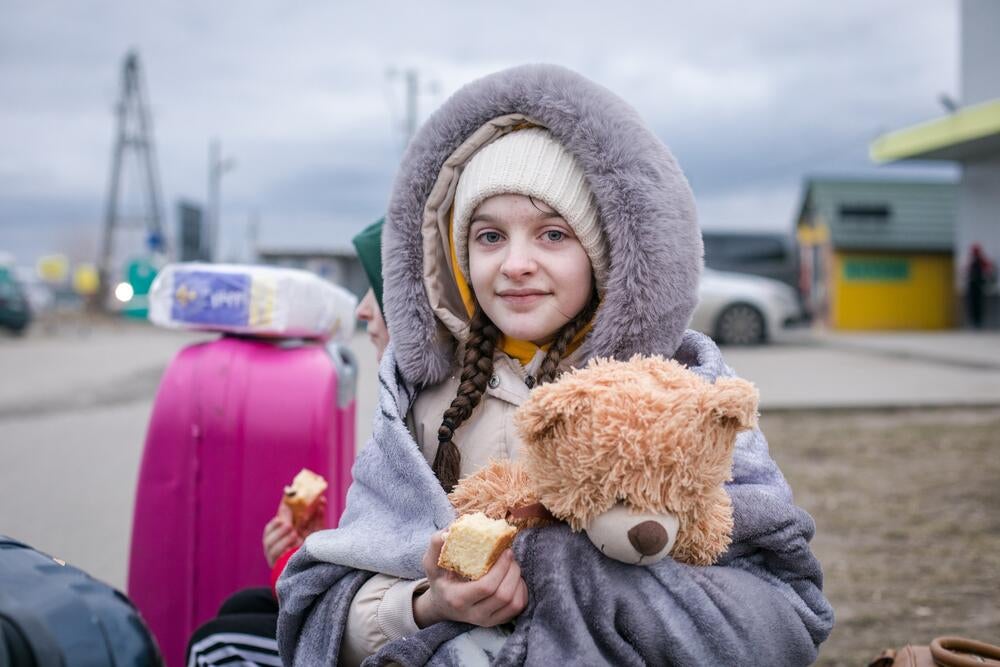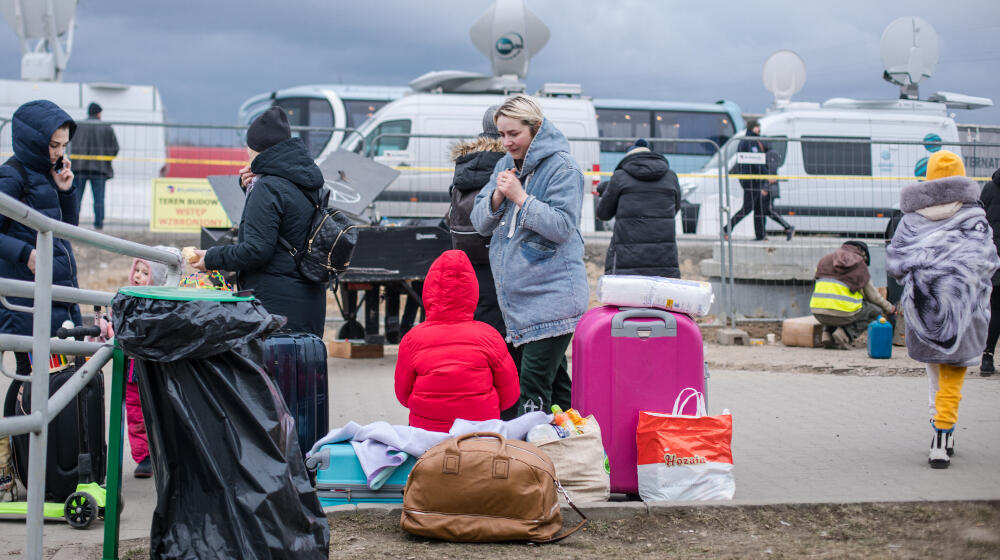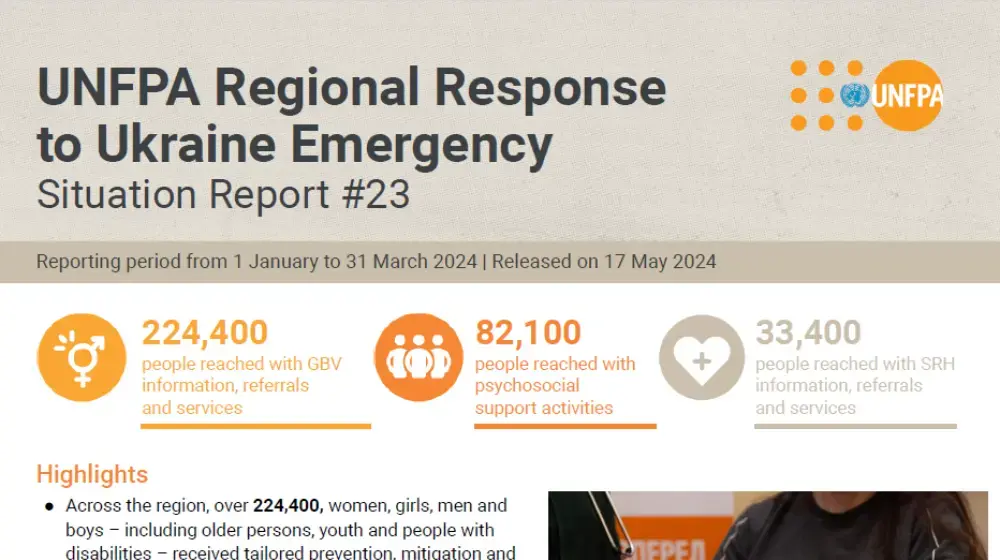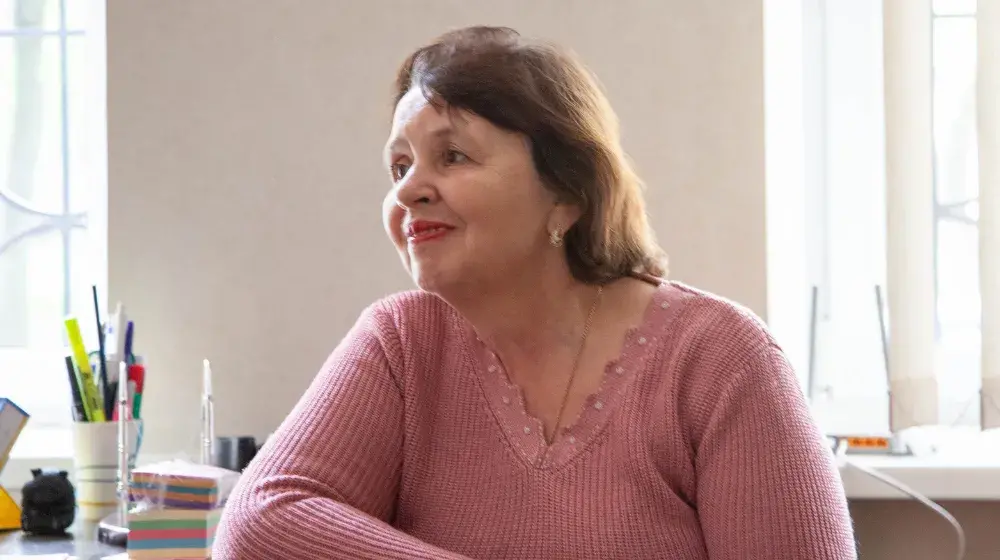MEDYKA, Poland – Ivanna Povchenuik was four months pregnant when she and her two children fled their home in Ivano-Frankivsk in western Ukraine, leaving behind her 65-year-old father, who wished to stay. Their destination was Antwerp, Belgium, where her husband and the children’s father has been living and working for the past five years.
“It's scary when your dreams and plans are destroyed,” said Ms. Povchenuik , 32. “When your relatives and friends die, and you can do nothing. When in a few minutes, you have to take everything you need and run away into the unknown.”
They went to a nearby town called Yaremche, where they boarded a bus that took six hours to drop them off close to the Polish border. From there, she and the children – 12-year-old Sniazanna and 8-year-old Artur – walked four hours until they reached the border crossing. At some point they considered returning home because of the difficult situation, but after waiting in line for five more hours in the cold, they finally set foot on Polish soil.
“I burst into tears because the people are so kind,” she said. “I haven’t met anyone like that, helping with anything they can – food, diapers. I was deeply touched.” In war, she added, “There is a kind side and an evil side.”
More than 4.2 million have fled Ukraine, with more than 2.4 million entering Poland. Of those, 41 per cent plan to stay. According to the Minister of Education, 85,000 Ukrainian children have enrolled in Polish schools with 10,000 more enrolling each day.
Loss upon loss
After another 16 hours on the road, the family was reunited in Antwerp. A week later, Ms. Povchenuik lost the baby. “The stress, the experience, the hard road, I think, caused the loss,” she said.
At the start of the war, UNFPA estimated 80,000 of the 256,000 pregnant women in Ukraine would give birth in the next three months, many without access to critical maternal care. Since then, our screens have flashed images of babies born underground, pregnant women dying in shellings and premature babies – the number of which has sharply risen, along with delivery complications, according to Jaime Nadal Roig, UNFPA Representative in Ukraine. UNFPA has delivered 13 metric tons of supplies, medicines and equipment to cover the reproductive health needs – including giving birth safely – for a population of 500,000 people. Three mobile clinics, including a maternity clinic, have also been dispatched to support safe birth.

The Povchenuik house has become a temporary shelter for a family fleeing shellings in Zaporizhzhia in southeast Ukraine. “Temporary” is a common condition these days. Though Sniazanna and Artur are now attending school and Ms. Povchenuik has found work as a cleaner in their adopted city some 1,700 kilometres from their hometown, they hope their stay isn’t permanent.
“If there is going to be peace, we will go back. We have family, friends and school there. Everyone is waiting for us,” she said. “We dream of returning to our home, not hearing air alarms, falling asleep peacefully and living a quiet life.”




